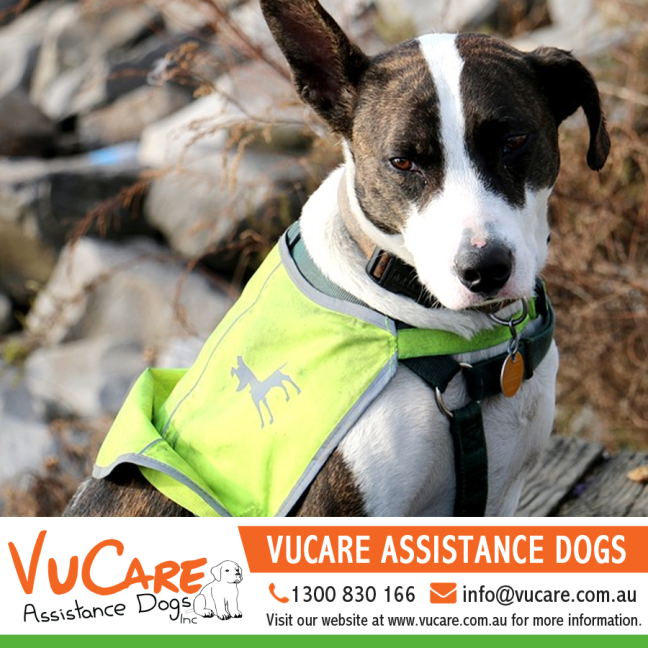
Someone who’s physically challenged knows the problem which could be found in everyday tasks that most of us tend to take for granted. For those coping with the daily challenges of life with a handicap, a habit trained by VuCare Assistance Dogs can be of tremendous help in helping them to achieve a greater level of mobility and independence.
Some of the benefits of a Service Dogs are:
Service dogs are with their partners constantly. It is basically like having a helper 24 hours every day!
SELF SUFFICIENCY
The disabled person has less demand for asking other people to assist with tasks. This is not only practical in many circumstances, it has the psychological advantage of beating the feelings of despair and imposition that a person can feel having to ask for help repeatedly.

LESSENED CAREGIVER COSTS
There is less need for a human caregiver to assist with chores around the house or to perform tasks such as shopping, etc.. These dogs are trained to help with many tasks and are adaptable to learn how to take care of unfamiliar duties their partner might need assistance with.
While Service Dogs are not trained for protection since they need to be well mannered and nonaggressive in public, they do discourage aggressive improvements from others and can act as guardians for their partners (especially in cases of seizure victims).
The day to day interaction needed to take care of a dog assists the individual to stay active and involved with staying healthy. Even the simple act of throwing a ball in a game of draw is an exercise which helps both canine and human to keep in shape.

PHYSICAL THERAPY
Dogs offer many opportunities for exercise: dressing them, throwing a ball or frisbee, playing tug games, etc.. All of these help keep their individual partner moving and staying limber. Many times a person will push themselves to strive harder for their dog than they would ever do just for themselves. In quite a few cases, these special canines are also trained to help with a structured physical therapy exercise, for example, lying across legs to give balance for sit-ups or supplying a brace for the spouse to use while walking or moving from a wheelchair.
PSYCHOLOGICAL BENEFITS
No matter how rotten a day has been, these special dogs offer affection during these hard times and offer unconditional love and support. So often a person with a disability will put on a brave front but inside will be in pain, scared, depressed, frustrated, angry, or just plain exhausted with coping with the effects of their disability. Having their canine partner there, giving them both physical and emotional support can make the difference between a tolerable day and one where you only want to give up.

SOCIAL BENEFITS
Many times individuals with disabilities experience isolation and in some instances, outright shunning because others feel uncomfortable with how they need to act around them. Unknown conditions can be scary and people are notorious for avoiding situations where they do not know what to do or how to act. Having a Service Dog will help to bridge that uncomfortable barrier. Where someone would feel they couldn’t possibly ask how a person deals with their handicap, they are easily able to show an interest in the way the dog helps their spouse. This increased social interaction greatly lessens the isolation and feelings of being alone that the disabled individual must cope with everyday. As one spouse once said, “my dog makes my wheelchair disappear”.
About VuCare Assistance Dogs
VuCare runs as a not for profit organization that offers support with medical aids and has a goal to train Assistance Dogs and Company Dogs to enhance the quality of life and increases the degree of freedom for people who have handicaps. VuCare Assistance Dogs and Company Dogs provide their new owners greater autonomy increased freedom, enhanced trust, and greater self-esteem.
To learn more phone us on 1300 830 166 or email us at info@vucare.com.au. Visit VuCare Assistance Dogs Australia site at http://vucare.com.au.








